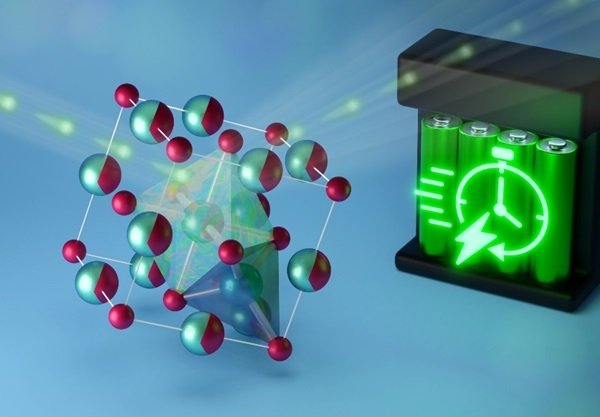University and Department of Energy national laboratory scientists have found a table-salt-like material that can rapidly charge and discharge energy without forming the structures that can cause short-circuiting. Lithium vanadium oxide, a so-called disordered rock salt atomic structure, charges and discharges without growing lithium metal dendrites – rigid, tree-like structures. Slow recharging in devices with lithium-ion batteries helps prevent the dendrite growth, which can pierce the battery’s protective layers and lead to fires. Eliminating this risk could lead to safe rapid-charging batteries. The team carried out neutron diffraction measurements at the VULCAN instrument at the Oak Ridge National Laboratory Spallation Neutron Source. Researchers also conducted X-ray studies at Argonne National Laboratory’s Advanced Photon Source, and theory and modeling at the National Energy Research Scientific Computing Center and the University of California, San Diego, computing facilities. During testing, the material not only resisted dendrite growth. It also delivered more than 40 percent of its energy capacity in just 20 seconds.
Table-salt cousin could speed battery charging, improve safety
Lithium vanadium oxide, with its disordered rock salt atomic structure, may reduce some of the inherent problems that slow down the charging of lithium-ion-battery-powered devices.
